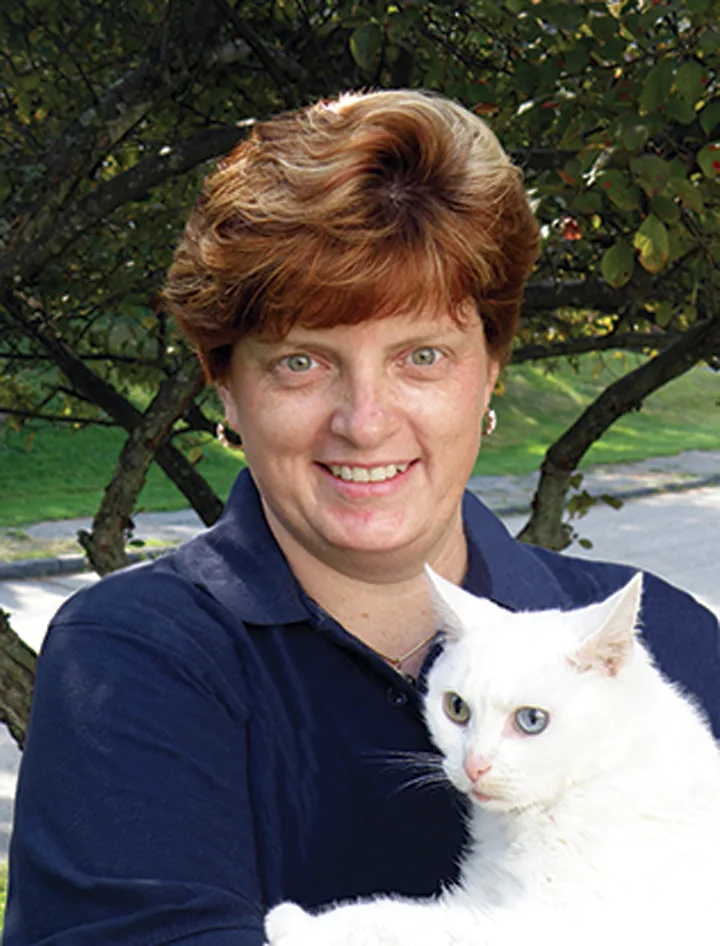A Disturbing Trend: Veterinary Cyberbullying

Shirley Koshi, DVM, took her own life on February 16, 2014, only 7 months after opening her solo practice in New York City.1 Koshi, a native of India who had practiced in the U.S. for much of her 33-year career, endured vicious online attacks and severe financial pressure in the last months of her life as she defended herself in a cat custody battle.1,2
Related Article: The Impaired Veterinarian: Recognizing Depression & Possible Suicide
Stunned and saddened to learn of the events leading to her suicide, the veterinary community is confronting a harsh reality: Cyberbullying. No longer harming only children and teenagers, cyberbullying can also have devastating consequences for veterinary professionals, who may need to develop new skills and resources to prevent this harassment from harming their practices and disrupting their personal lives.
Koshi’s troubles began last summer when 2 rescuers presented a sick tuxedo cat found in a nearby park.3 “This cat had been living in the park for I don’t know how many years and had had several bouts of upper respiratory disease, so living outdoors was not the best thing for this cat,” Koshi said in a video posted online after her death (which was later deleted).4 The cat improved and “had stayed here for 2 weeks. Then this woman showed up saying, ‘It’s my cat.’ If it were her cat, it shouldn’t be living in a park, especially a public park. So she went to court but she didn’t have any proof that she was the owner, and she had no proof that she was allowed to keep this cat colony in a public park.”
“I fight for pets as much as I can”

“It’s never the end of the world for me when I see some pets that are quite sick, and I fight for them as much as I can. I just think God made animals for the enjoyment of people and to live with us happily, and as a veterinarian I try my best to be kind and gentle with my patients. I don’t want them to leave here thinking, ‘We weren’t even given a chance to express ourselves,’ so even if they hiss and bite or growl, nobody asked their permission when they were brought here, so I’m more than happy if they tell me what they think about me.” —Shirley Koshi, DVM, in a video posted after her death4,5
The woman Koshi described was Gwen Jurmark, who said she was the rightful owner of the cat, named Karl, because she had adopted him from a shelter years earlier and paid for his neutering and vaccinations before releasing him in the park. Koshi refused to allow Karl to resume living in the park, adopted him, and took him home.
After Jurmark sued for custody in New York Civil Court, she led a protest demanding Karl’s release outside Koshi’s Gentle Hands Veterinarian practice. Others took to the Internet, vilifying Koshi on blogs and Facebook pages, one with a December 31 post that began with the question, “Is This the Worst Vet of 2013?”6 Attacks also appeared on Koshi’s Facebook page and her practice’s website.
Will Page, a veterinary technician who worked with Koshi, told the New York Daily News that business declined at Gentle Hands after the lawsuit and protests.1 A flood soon damaged the office, and Koshi’s savings were exhausted. Page said Koshi appeared deeply depressed when she left her practice on February 10. Six days later, police found her dead at home, apparently of a drug overdose. She left a note saying she was sorry and thanking her employees for their service.1
Related Article: Bullying and Aggression in the Veterinary Profession
We need to step back and ask ourselves: Do these people really know me? How much credence am I going to give this person to tear me down?
Sympathy & Support
“The New York State Veterinary Medical Society [NYSVMS] considers every NYSVMS member as a member of our ‘family,’ and our sincerest condolences are extended to the family and staff of Dr. Koshi,” said Jennifer Mauer, the society’s executive director.
One of Koshi’s supporters started a petition on Change.org to hold participating bullies accountable. Directed to the New York State Division of Criminal Justice Services, it had gained 3,863 signatures as of March 27.7
Another supporter launched a blog titled Ban the Veterinary Abuse Network, alleging that its creator “drove an innocent victim to suicide with cyberbullying.”8
Related Article: When Techs Hurt Techs: Bullying and Horizontal Violence in Veterinary Medicine
Possibilities for Positivity
Mental health counselors and others who work with troubled healthcare professionals offered scenarios where Koshi could have reached out for support.
“We were shocked at what we read” about Koshi’s death, said Charles Meredith, MD, a Seattle psychiatrist who, with his assistant Amanda Shaw, MPH, counsels healthcare professionals in crisis. Although they have previously supported physicians, Meredith said, they had not encountered cyberbullying of veterinarians.
Noting that “veterinarians tend to be more socially isolated” than other healthcare providers, Meredith said, “I think that if (Koshi) had been one of 12 veterinarians in a group and working in a hospital, her colleagues would have been able to make her feel it was against the hospital, not just her.”
If she had gone to her state Veterinary Medical Association, he said, the organization could have taken a public stance, and she could have had allies saying, “This is a very good provider who’s doing the right thing.”
Carrie La Jeunesse, DVM, CT, CCFE, who heads the Washington State Veterinary Medical Association Wellness Task Force, helps peers with emotional disturbance over professional issues. She has written about her own thoughts of suicide as she came to terms with chronic pain:
“We can’t blame others for someone’s suicide,” she said. “One person in such a situation does not complete suicide; another does. … There’s no standard about how we can avoid it. Sometimes it’s impulsive; sometimes it’s well-planned.
“It doesn’t matter sometimes how devoted you are and how well you do your job. People will still do unpredictable things. We need to step back and ask ourselves, ‘Do these people really know me? How much credence am I going to give this person to tear me down?’”
La Jeunesse said Koshi may have been able to work toward a positive outcome if she had partnered with the local animal control agency. She could have said, “I’m willing to keep and treat this cat at my own expense,” and requested a written copy of guidelines covering her situation. She could have posted a picture of Karl in an effort to find his owner and continued to keep in touch with the agency, sharing the burden of decision making rather than trying to go it alone. (See Tips to Maintain Health & Self-Esteem for ways to protect your self-esteem if you are in a similar situation.)
This case highlights the dark side of social media and the danger it can present to the veterinary profession.
If Only
“This case highlights the dark side of social media and the danger this presents to the veterinary profession,” stated the Veterinary Defence Association (VDA) in a LinkedIn post.9
“What frustrates and saddens the VDA is that, had Shirley Koshi been a VDA member, she would have had access to all the professional protection she needed to get safely through this saga. And she would probably still be alive today. The VDA would have driven a public campaign in support of Dr. Koshi to counter the damage perpetrated…
“She would have received advice, guidance, and moral support, as well as counseling from our veterinarian mental wellness counselor. The defense of the litigation against her would have been driven by veterinarians who are veterinary defense experts.”
“No Knowledge of Me”
“They have written such horrible things on my Facebook page that, you know, it will take a lot of time before I can erase all that,” Koshi said in the online video.4 “And the people that are writing all these things, they have no knowledge of me. They aren’t clients here.”

A Bullying Target: "My life was turned upside down"Former bullying target Melissa Supernor, CVT, RVT, VTS (SAIM), based in Shrewsbury, Massachusetts, founded Educational Advocate for the Veterinary Team (EdAVT) to help veterinary caregivers addressing workplace bullying, stress, and harassment.
Describe a situation in which you felt bullied.Bullying has become rampant in veterinary medicine, both within and outside the practice. One veterinarian I didn’t even work with came into a room where I was alone and asked me to do something I couldn’t do at the time. He screamed so much that I thought he was going to hit me.
What was your reaction?To retreat to safety within myself. Never did I defend myself. I didn’t know how to fix it. I was scared to go to work and had a lot of trouble with physical illnesses.
How did you sort through your feelings and maintain your self-esteem and mental health?The bully told administrators that the occurrence was my fault, that I was the one who started screaming and yelling, and they believed him. I lost total respect for the hospital and decided to leave. My life was turned upside down. It was a long road and one of the hardest things to come back from. The more one is bullied, the more one starts to doubt her skills and herself as a person. I can’t say that I’m ever going to get totally back to normal, but I know I’ll never let it happen again.
What would you do differently in the same situation today?I probably would say, “When you calm down, you can come back and talk to me,” or just walk out.
What are the main differences between bullying within a practice and bullying from outside?Bullying in a practice creates a very unhealthy life for the targets, who can’t get away from the abuse. It is horrible to go to work day in and day out without feeling safe. With an outside bully, the harassment is constant and inescapable, especially in an era of social media. Each is horrible—the target cannot live a normal life.
How does one recognize bullying and take steps to limit the harm it can do?Know the signs. It starts with rude comments. A woman might say them behind the scenes, whereas a man might say them directly. One person can get the rest of the team to be abusive. Understand that you are not the one with the problem. Know your rights for a safe working environment. When addressing management, be factual and try to keep emotion out of the equation.
What can the veterinary community do to present a united front and eliminate bullying?Once the community as a whole recognizes bullying as a syndrome, professionals will understand when it is developing and how to handle it. Because the veterinary profession has some of the highest rates of depression and suicide, it is time for us all to come together to help each other.
Tips to Maintain Health & Self-Esteem
Effective self-care is the first line of defense for a veterinary practitioner experiencing bullying or other high-stress situations involving difficult clients or colleagues. Two mental health counselors familiar with the demands of veterinary caregiving offered tips for staying cool, calm, and in control.
“A great counterbalance for compassion fatigue is to give yourself credit for your successes,” said Carrie La Jeunesse, DVM, CT, CCFE. “When I give a dog a vaccine and he doesn’t even feel it, I think it’s okay to say, at least internally, that it’s because I work very hard to make vaccines as pain-free as possible.”
Psychiatrist Charles Meredith, MD, noted that mentors can be helpful, whether the issue is maintaining self-esteem or making sure one’s legal needs are being met. Dr. Meredith advised: “Connect with a colleague in your community who has dealt with a similar stressor…someone who can tell you, ‘You’re a good provider. It could have happened to any of us.’”
Their tips:
Do not allow people who do not know you to affect your mental health.
Try to reduce your clients’ stress and level the playing field so you are true partners.
Remember that your profession is what you do, not who you are.
Consider a mindfulness practice: When you meditate and watch your thoughts go by, you may find them amusing. Decide whether the conversations in your head are valid.
If you think you have a legal issue, call your attorney or liability insurance provider and let him or her handle it.
If you practice alone, text or call colleagues and actively form relationships.
Cultivate resources and partner with people with complementary skills to build a “repertoire of professional well-being.”
Be prepared to deal with the media. Experts can teach you how to respond to a reporter’s questions, either about yourself or your peers.
If you are in a depressing situation and see no possibility of improvement, consider working in another profession rather than harming yourself.
Turn to colleagues for support through your state VMA or Physicians Wellness Program.
Reach out to loved ones.
Maintain a healthy work–life balance.
Stay offline when there is no good reason to be online.
Limit your social media presence, or avoid social media entirely.
Suzanne Smither has 30 years of journalism, editing, management, and research experience. Her writing has been published in numerous newspapers and periodicals, and she has authored 6 books about cats.
With special thanks to Cia McAlarney of Riverdale's HamletHub.